- Home
- Douglas Niles
The Messenger it-1 Page 4
The Messenger it-1 Read online
Page 4
“You have served me well,” acknowledged the prince. “I am glad that I spared your tusks. You know, I gave serious thought to having them sawn off.
The thanoi scowled, his leathery face creasing into deep wrinkles. “It would have been a sentence of death-my tribe would never let me return, thus shamed.”
“I have decided to release you back to your tribe and let you return to your stronghold as chieftain. Take care that you remember who is your liege.”
“How could I forget, Your Majesty?” If the tusker was being sarcastic, Grimwar couldn’t tell. “My wives … they will be released, too?”
Grimwar nodded. He had no desire for the company of the three fish-eating cows-they had spent the spring and summer in chains and were a bother to feed.
“I have your assurance that this is the last of their villages, here on the Icereach coast?” the ogre prince asked.
“Yes-you have seen that the shore of the White Bear Sea is but sparsely settled. For all my life, my people have explored in the wilds along here, watching, spying, waiting for a campaign such as you have waged to rid this coast of human scum.”
“You have helped us,” the prince acknowledged. “The Arktos are finished, and your people shall be rewarded with the right to stay for all time in the citadel set aside as your own.”
“Your Excellency is most gracious,” said Urgas, with a bow so deep that his tusks touched the ground.
“Yes.” Grimwar had several practical reasons for allowing the walrus-men to maintain possession of the ancient fortress across the strait. For one thing, they would harry the few surviving humans, and for another he would have a stronghold of allies on the point of land at the terminus of Icereach.
“With your permission, Sire, my wives and I shall depart at once. We will swim across the strait and bring word of your greatness to the rest of my tribe, which awaits me there. Naturally, we desire to get there well before the release of the Sturmfrost.”
“Very well.” The prince was secretly relieved. He would have feigned a celebration with the tusker chief and his wives in his mountain fortress, but he could only imagine how bad the place would smell, what with hundreds of oily walrus-men now dwelling there. This was an ally from whom he would be glad to keep his distance. “You may make your departure at once.”
The thanoi chieftain waddled away, padding on his flapping feet, while the ogre prince turned his attention to the hills rising above the coastal village.
“We found only men here, hunters and warriors. There must be survivors, their families, up there, somewhere,” said Baldruk Dinmaker. The dwarf stretched as he leaned back to look slyly up at the ogre prince. His hand, still holding the deadly weapon he so jauntily named “Snik,” gestured toward the rocky hills rising beyond the little coastal village.
“Bah,” Grimwar Bane snorted. “We killed enough men. Let the women try to survive through a winter if they wish. It’s not worth the trouble to pursue them. Besides …” He chuckled at a thought that made him feel rather clever. “If some of those wenches are taken in by the Highlanders, they will spread the tale of our raids. I would like for the rest of these humans to fear me.”
“Fear you they shall, Excellency,” agreed the dwarf. “I daresay the name of Grimwar Bane will bring terror into human hearts for generations to come.”
The prince scowled. It was his deepest desire that there be no more human generations, no humans at all-except for slaves of ogrekind-in this great expanse of land that was his ancestral kingdom. To this end he had embarked on the brutal campaign that had lasted these past four months, a series of lightning attacks and several particularly satisfying massacres, culminating in this bloody landing that had so thoroughly shattered the main camp of humans.
He knew, though, that, even though the coastal-dwelling Arktos had been decimated, more of the humans lived in the inland hills and mountains. These warlike Highlanders dwelt in fortified towns and were beyond the reach of his galley. He vowed to himself that they, too, would eventually be exterminated, but that would require long, grueling years of war.
Now his thoughts turned to home, and he pictured his own wife, the stern high priestess Staric ber Glacierheim ber Bane. What dire prophecies, what bleak warnings, would she have for him when he returned?
Another thought-the voluptuous new bride so recently taken by his father-brought a deeper frown to the prince’s face. When this kind of temper swept over him all of his underlings except Baldruk Dinmaker left him alone. The other ogres drifted away, and the prince of Suderhold stood alone with his dwarven adviser in the village center, watching with vague displeasure while his minions went about sacking and destroying.
“Search among the fallen! Find me one who still lives!” the ogre prince called impulsively. “I would question a prisoner.”
As if he had been waiting for just that suggestion, one of the ogres gave a shout as he stooped to enter a hut. Cursing, he backed away and plucked a harpoon out of his thigh. Fortunately, the weapon had been thrust weakly, barely puncturing his skin. With an indignant snort the ogre bent double and reached into the small abode. A moment later he rose with a squirming, pathetic figure held in his arms. The prisoner was an old man, and when the warrior brought him to Grimwar and set him down the fellow collapsed weakly to the ground.
“An old human, Majesty,” reported the raider proudly. “ ’Was hiding in that little hut-legs don’t work.”
The poor cripple tried to crawl away from Grimwar, but the younger ogre kicked him around so that the wretch could only stare upward piteously at the prince. Grimwar knew that he made an impressive, even awesome, sight to a human. He puffed out his massive chest, feeling the solid weight of the golden breastplate, allowing the dazzling metal to reflect pale sunlight into the human’s eyes.
“Have you seen any elves here?” demanded the prince.
For a moment the man looked blank, then scowled and shook his head. “Who ever heard of an elf in Icereach?” he demanded.
The ogre who had captured the man cuffed him across the head, a blow that knocked him prone. “Be silent when you answer the prince!” he roared.
Grimwar suppressed a sigh, but didn’t point out the illogic of his underling’s command. Instead, he waited for the man to push himself back to a sitting position. The prince couldn’t help being impressed by the fellow’s spirit-even after such a blow, the human glared with defiance. Though he was an old man, he still had a warrior’s glint in his eye.
“You know nothing of any elves?”
The man’s laugh was dry and humorless. “If you mean, ‘have I ever in my life seen an elf?’ I can tell you ‘no.’ Nor have I heard of any elf in this part of the world-they live far across the sea to the north, as any fool would know.”
The prince held up his hand before his raider could land another blow as punishment for the man’s insolence.
“Tell me about precious stones, then. Why are you people so poor? There have been but a few coins, buckles, and the like among all your wretched villages! Why, do you have so little care for things like gold?”
“Gold? Do I look like I have any need of gold?” The man contemptuously cast his hands over himself, and the prince took note of his ragged leather clothing, the lack of any ornamentation. He didn’t even have a belt buckle-his pants were supported by a belt of frayed rope, tied in a knot at his waist.
“No, for gold you must seek the Highlanders. Talk to their king-he will tell you of gold mines, and then, undoubtedly, he will kill you!”
Grimwar turned away. The first answer pleased him. The second did not. He nodded at Baldruk, who was already holding Snik at the ready. The prince stalked toward the beach, the prisoner already forgotten. Moments later the dwarf, huffing into a jog, caught up with him.
“Where did the damned clouds go?” snorted Baldruk, using his hand to shield his eyes from the sun he hated so much.
This was something the ogre prince had never learned to understand: How could someone hat
e the sun? He himself pined for a mere glimpse of it during the span of winter, three to four months of frigid night that always seemed to last longer than the whole rest of the year combined. When he was outside, under the open sky, Grimwar resented every shred of cloud that blocked the precious brightness. This dwarf, born in the distant underground realm he called Thorbardin, was forever griping and shading himself.
“Again we hear of this Highlander king,” mused the prince. “Perhaps it is true that the humans in the mountains know of more gold mines.”
“Indeed, Sire. They would be worth a campaign in a future year.”
“Yes. Perhaps we will commence that next spring. And for now, there is no sign of any elf. That is good news.”
“You are still worried about the prophecy made by the high priestess, your wife, aren’t you?” guessed Baldruk.
“Do not discount the wisdom and the warnings of Gonnas the Strong,” Grimwar warned. Especially as interpreted by the stern high priestess Stariz ber Bane, wife of the crown prince, he added to himself.
“I would never imply disrespect to the god of your ancestors,” the dwarf said hastily, “but perhaps the warning refers to a threat that has already been neutralized.”
“My wife did not think so,” Grimwar noted. With a little shiver of nervousness he pictured her in full ceremonial regalia. Stariz ber Bane was a forbidding woman physically, as large as the prince himself at fully four hundred pounds and seven feet of height, his equal in short-tempered stubbornness. When she wore her obsidian mask with its tusked, bestial visage, when she was surrounded by smoke and incense, her appearance was as frightening as anything Grimwar had ever seen. As high priestess of the ancient ogre god, Gonnas the Strong, who was also known as the Willful One, she was prone to casting stones and working auguries, announcing various predictions from a fierce and vengeful deity.
Furthermore, these divinations had a way of proving surprisingly accurate. It had been Stariz who predicted that Grimwar’s father, the king, would banish his first wife, the Elder Queen, to distant Dracoheim. And she had seen that he would then, quickly, take a beautiful young mate in her place. These events, as Grimwar knew only too well, had come to pass. He asked himself silently, why did that young wife have to be Thraid Dimmarkull?
However, it was a recent prophecy that had been on his mind this summer.
“ ‘Beware the Elven Messenger,’ my wife told me, ‘for he brings your doom to Icereach.’ I would mock her faith, and mine, if I took her warning lightly.”
“Of course,” the dwarf agreed unctuously. “But look, Sire, the tide has turned. Shall we put to sea?”
The king nodded, still struggling with a vague discontent. He looked at Goldwing, knowing that the great ship’s hold was crammed with slaves-hundreds of humans they would take back to Glacierheim, many of whom had been imprisoned below decks for months. Their numbers made this the most profitable campaign against humans in the memory of any ogre. Yet when he paused on the ramp leading to the galley’s deck, his eyes involuntarily shifted back to the land, and followed the rugged crest of mountainous horizon rising a dozen miles behind the beach.
In his mind he saw Highlanders and elves, gold and more humans, and war.
4
Moreen Seal-Slayer
She held the harpoon against the ground and remained utterly silent, completely still. Her quarry, a sleek, fat gulf seal, was sunning itself on a flat rock above the lapping surf, an instant’s wiggle away from deep water. Moreen knew that she would get one cast, and success or failure would determine whether sixty people had a substantial meal tonight, or-once again-would have to make do with a few greens plucked from the banks of the coastal streams and whatever shellfish and mussels they could scrape off the flat beach.
What would they do in the winter when the Sturmfrost descended upon them and survival out of doors became all but impossible? That question, had come to dominate her thoughts, but she roughly pushed her fears aside. Later she would try to find an answer for the future. Right now, she had to worry about tonight’s dinner.
With deliberate motions she advanced her right hand and the harpoon, then the left hand, then each knee in turn, crawling closer to her prey. Abruptly the seal lifted its head, dark eyes alert, one seeming to fix itself on the human woman who was still fifty feet away, too far away for an effective cast. Moreen heard barking from up the beach, other seals out of sight behind the rock, squabbling and complaining.
Finally her intended prey laid down its head once again to bask in the warmth of the midsummer sun. The huntress resumed her cautious approach, watching the tundra before her, careful not to scrape a rock or crush a brittle willow twig. The soft wind came off the sea, safely carrying her scent away from her quarry.
Inch by inch, foot by foot, she wormed her way closer … forty, now thirty feet. The flat coastal ground was so wet that water soaked right through her leather pants, and her knees felt cold and sodden. Her neck grew stiff from holding her head upright, but her alertness paid off. She froze just in time as the seal again lifted its head. This time, when the animal settled into its drowsy repose, she was ready to act.
Gradually, she rose up to a kneeling position, until her back was straight, her throwing hand cocked. The smooth stretch of the harpoon, with its keen ivory tip floating almost weightless before her, was parallel to the ground, at the same height as her ear.
Now all of her care, all of her skill, her hunger, her desperation, came into sharp focus. The target seemed to grow before her, a warm heart pulsing beneath that black, shiny coat, and for just a moment she felt a powerful connection, almost as if the seal’s blood was flowing through her body. She made a soundless prayer to Chislev, a whisper of gratitude for this opportunity, and a plea for steadiness and true aim.
She let fly. The harpoon sailed through the air even as the animal, alerted by the sound of her throw, flipped toward the water. The ivory head pierced the wriggling body, and Moreen sprang to her feet and hauled on the thin line wrapped around her wrist, the sturdy cord attached to the barbed head of the harpoon.
The seal was gone by the time she reached the rock, but when she looked in the water she saw that her aim had been true. The animal floated, lifeless, in a murk of blood. Quickly she pulled upward, wincing as the animal’s dead weight came free from the sea.
“Eighty pounds, I’ll bet you are,” Moreen said. “Thanks be to Chislev Wilder. The Arktos will eat well tonight.”
Only then did her eyes fall on the beach exposed behind this seal’s rocky perch. She was not surprised to see dozens of seals there-the sounds of their barking had suggested as much to her already. Surprisingly, though, several of them were very close to her vantagepoint. This seal had been killed cleanly and had died without barking a warning.
Swiftly she lowered herself to the ground, out of sight of the animals. Methodically she started to coil the cord. Taking only the time to clean the head of her harpoon, she started crawling forward again.
“Five more seals?” Bruni’s broad face split into a disbelieving grin. “Praise to Moreen Seal-Slayer!”
“They’re all gutted-about a half a mile up the coast, behind a big flat rock,” Moreen said, staggering under the load of the one animal she had carried back with her. Exhausted, she dropped the cleaned carcass and collapsed to the ground, suddenly feeling weak in every limb, every muscle.
“Rest yourself-we’ll get the others,” Bruni said cheerfully. “I’ll carry two. C’mon Tildey, Garta, Little Mouse. Let’s go get dinner.” The big woman pushed herself to her feet. Accompanied by her three willing helpers, she started up the shore at quick pace. From her waist, hung the heavy stone hammer she had found in the rubble of the village after the ogre attack. Since that day Bruni was never seen without her favorite weapon close to reach.
“Did you really get six seals?” asked Feathertail, wide-eyed, as she came up to stare at the gutted animal.
Moreen nodded tiredly. “Would you like to learn how to skin i
t?”
A cluck of sound drew Moreen’s attention. Dinekki was hobbling toward her, shaking her head and making a tsk-tsk noise over and over.
“She has to learn sometime,” Moreen said, wondering what the elderly shaman wanted.
“Well, of course she does,” Dinekki agreed readily, “but there are plenty of us who can teach her that. Why, I myself used to know how to use a skinning knife, before my hands got all knotted up like a sun-dried cord.” She inspected her wrinkled and knobby fingers with a scowl.
“Can I learn how to skin the seal?” Feathertail asked tentatively.
“Didn’t I just say you could?” snapped Dinekki, though an affectionate light in her eye softened the rebuke. “Hilgrid, you have a sharp knife, don’t you?”
Hilgrid, who was stretching out a pelt from the seal Moreen had killed yesterday, smiled and nodded. “Just a minute, Feather. I’ll show you how to do it. You know, if Moreen keeps hunting with so much success, I’m going to need to teach someone how to preserve these pelts also.”
“You,” Dinekki said, glaring down at Moreen, who wanted only to close her eyes and loll on the soft tundra for the last hour of daylight. “You must come with me.”
Knowing better than to argue, the huntress pushed herself to her feet and followed the shaman up a gentle slope, toward the small niche in a cliff wall, where the Arktos had collected the few meager belongings they had brought with them away from ravaged Bayguard.
Moreen sighed as she entered the scant shelter beneath the overhanging rock. She saw a pile of straight sticks off to the side, next to a stack of sealskin pelts, the few that had been overlooked by the ogre raiders. There were some skins full of fresh water, a couple of clay pots containing whale oil, a pile of ivory harpoon and spearheads that the survivors had scavenged from the broken weapons left behind by the attackers.

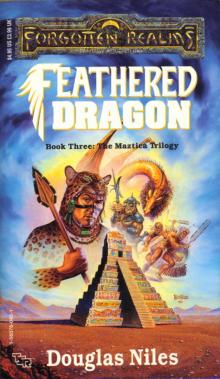 Feathered Dragon mt-3
Feathered Dragon mt-3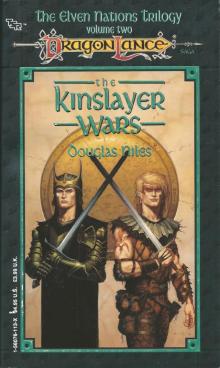 The Kinslayer Wars
The Kinslayer Wars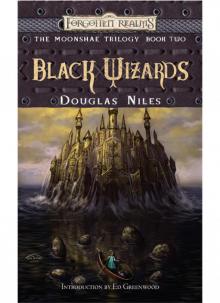 Black Wizards
Black Wizards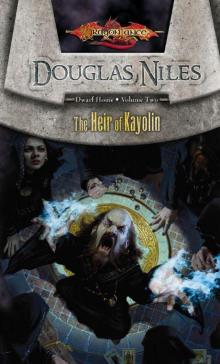 The Heir of Kayolin dh-2
The Heir of Kayolin dh-2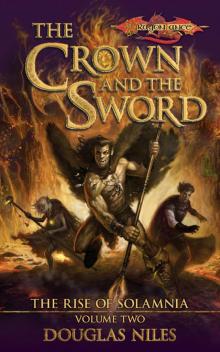 The Crown and the Sword tros-2
The Crown and the Sword tros-2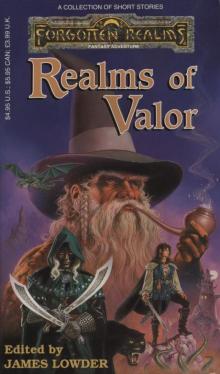 Realms of Valor a-1
Realms of Valor a-1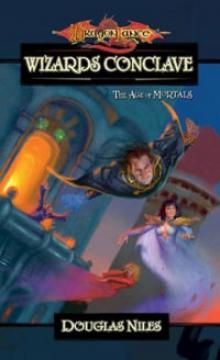 Wizards Conclave aom-5
Wizards Conclave aom-5 Fox On The Rhine
Fox On The Rhine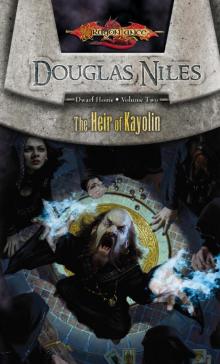 The Heir of Kayolin
The Heir of Kayolin Fox at the Front (Fox on the Rhine)
Fox at the Front (Fox on the Rhine)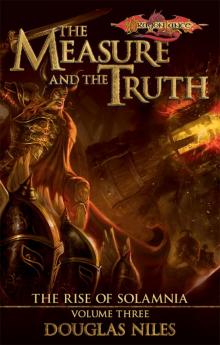 Measure and the Truth tros-3
Measure and the Truth tros-3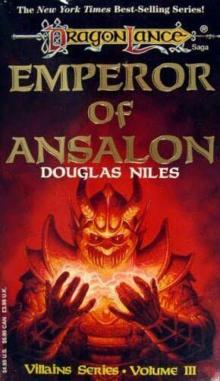 Emperor of Ansalon (d-3)
Emperor of Ansalon (d-3)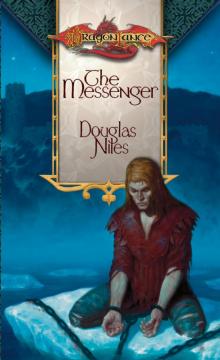 The Messenger it-1
The Messenger it-1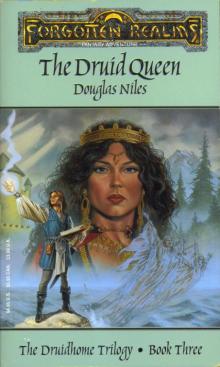 The Druid Queen tdt-3
The Druid Queen tdt-3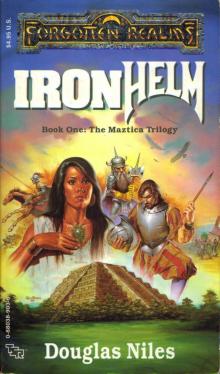 Ironhelm mt-1
Ironhelm mt-1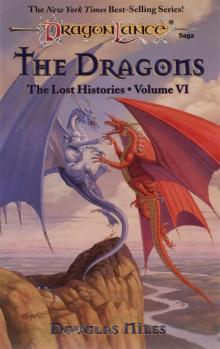 The Dragons lh-6
The Dragons lh-6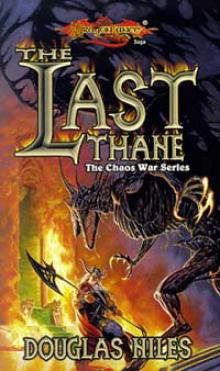 The Last Thane cw-1
The Last Thane cw-1 Circle at center sc-1
Circle at center sc-1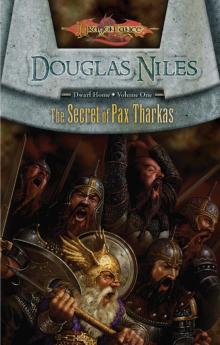 Secret of Pax Tharkas dh-1
Secret of Pax Tharkas dh-1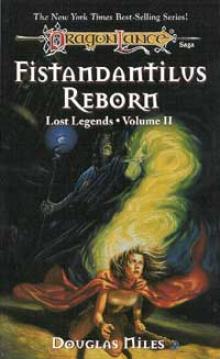 Fistanadantilus Reborn ll-2
Fistanadantilus Reborn ll-2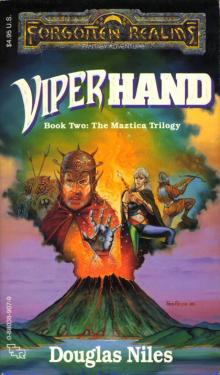 Viperhand mt-2
Viperhand mt-2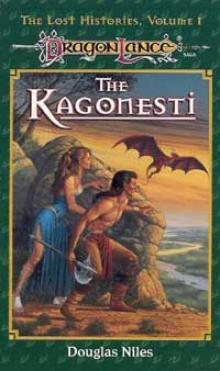 Kagonesti lh-1
Kagonesti lh-1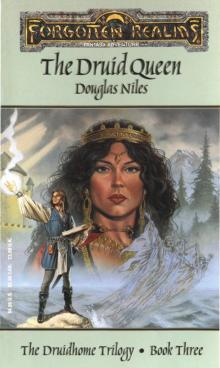 The Druid Queen
The Druid Queen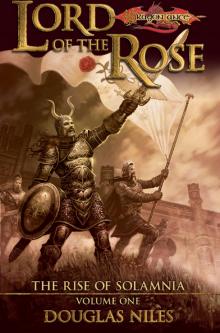 Lord of the Rose tros-1
Lord of the Rose tros-1 Goddess Worldweaver sc-3
Goddess Worldweaver sc-3 Eyeball to Eyeball (Final Failure)
Eyeball to Eyeball (Final Failure)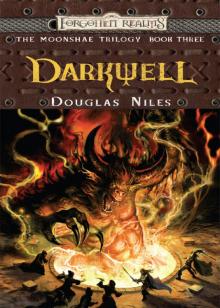 Darkwell
Darkwell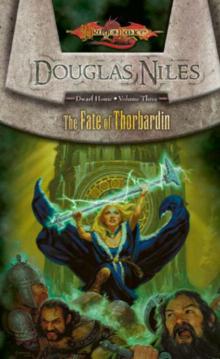 Fate of Thorbardin dh-3
Fate of Thorbardin dh-3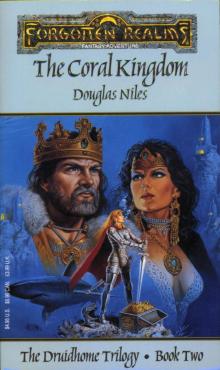 The Coral Kingdom tdt-2
The Coral Kingdom tdt-2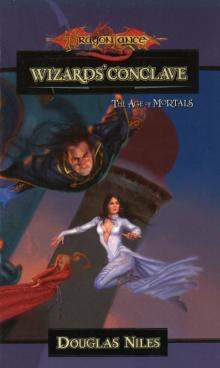 Wizard's Conclave
Wizard's Conclave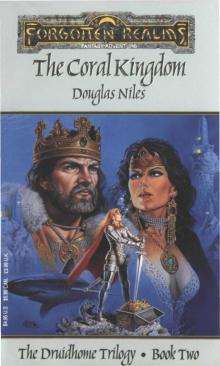 The Coral Kingdom
The Coral Kingdom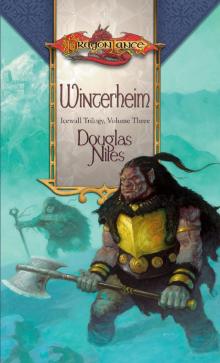 Winterheim it-3
Winterheim it-3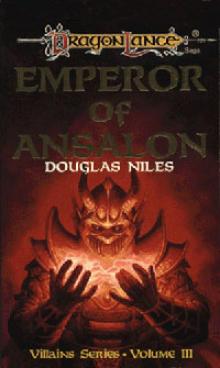 Emperor of Ansalon v-3
Emperor of Ansalon v-3 MacArthur's War: A Novel of the Invasion of Japan
MacArthur's War: A Novel of the Invasion of Japan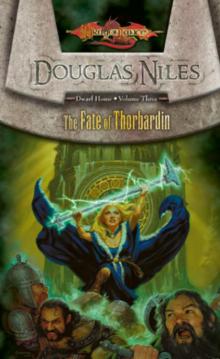 The Fate of Thorbardin
The Fate of Thorbardin The Rod of Seven Parts
The Rod of Seven Parts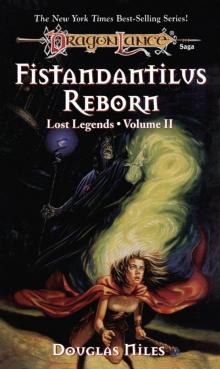 Fistandantilus Reborn
Fistandantilus Reborn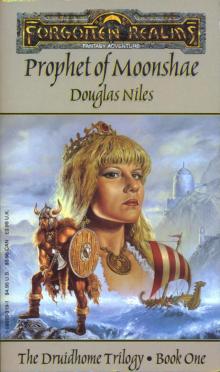 Prophet of Moonshae tdt-1
Prophet of Moonshae tdt-1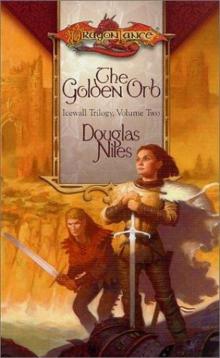 The Golden Orb i-2
The Golden Orb i-2